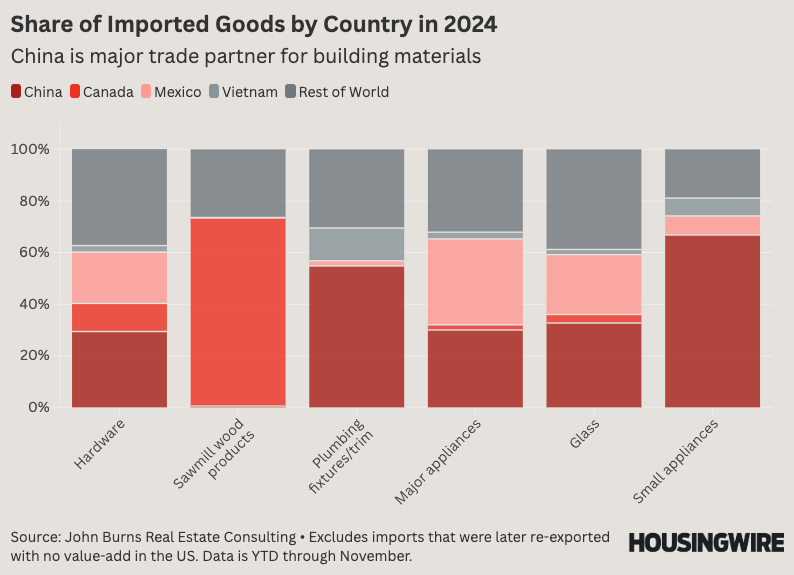Art Carter, CRMLS ‘stands resolutely’ in support of Clear Cooperation

According to Carter, the MLS allows real estate professionals and their clients to “make informed, fair decisions” by creating a platform where all agents and their clients have access to the same, accurate information about available properties. The CCP acts as “protection against select brokers who keep information exclusive and hidden.”
“If a listing only circulates within one brokerage, the days on market (DOM) can be misleading and deprive other buyers of the opportunity to compete for the property,” Carter wrote. “But when that listing is placed on the MLS, agents gain valuable insights such as accurate pricing, feedback about the property and potential buyers. Additionally, if a listing never appears on the MLS, sellers lose the opportunity to have a broader pool of buyers and potential bidding wars.
Therefore, Carter believes the CCP is integral to “maintaining the integrity of the MLS” and “necessary to promote cooperation and ensure all parties have access to a transparent and fair marketplace.” He believes this is crucial to maintaining confidence in the real estate sector.
Carter also notes that CRMLS is a “broker cooperative.” That’s why it develops and implements business practices that we believe support brokers and their customers. This is unlike a listing platform, and Carter believes its only function is as an advertising tool for sellers.
“A brokerage cooperative must provide meaningful services to all of its subscribers, their customers, and other stakeholders,” Carter wrote. “While listing platforms are valuable and some of our best customers, they do not establish rules, policies or systems to facilitate collaboration between agents. Instead, they focus on advertising properties for sale and providing historical information.”
The op-ed also notes that sellers who choose to hire an agent to list their properties are not allowed to use the MLS under CRMLS rules if they enter into an open listing agreement with that agent. According to Carter, CRMLS members were trained on this prior to the implementation of CCP in the spring of 2020.
“Any competent broker can effectively use the terms of a non-exclusive listing agreement to meet the needs of a seller who prefers not to have their property widely distributed through the MLS and its associated IDX distribution systems” , Carter wrote.
“This approach is particularly relevant for high value properties where it is common for viewings to require signed non-disclosure agreements (NDA) to ensure privacy and facilitate the exchange of evidence of funds between buyers and sellers. NDAs can easily include provisions to protect the listing company’s commission rights by preventing a buyer’s agent from bypassing the listing company and negotiating directly with the seller.”
Carter further stated that the CRMLS will not participate in any scheme to intentionally misrepresent or withhold information about a property’s history and the number of days it has been available for sale – regardless of whether a buyer is represented is or not. He notes that these types of arrangements could subject CRMLS to “significant liability.”
According to Carter, some real estate agencies are pressuring CRMLS to take these types of actions because they are “trying to force buyers to find properties solely on that agent’s own website.”
“Such a strategy would also benefit the brokerage by pressuring buyer agents from competing firms to leave their current brokerage and join the firm that manages the hidden inventory,” Carter wrote. “However, CRMLS will not implement rules that favor one business model at the expense of others, especially when this directly harms potential buyers, as well as sellers whose properties remain on the market longer than necessary.”
In addition to not participating in schemes to misrepresent or conceal listings, Carter said CRMLS also will not establish a private listing network exclusive to CRMLS subscribers. This, he said, would “clearly disadvantage consumers who choose not to work with a real estate agent because they would not have access to listed inventory.”
According to the op-ed, some brokers have threatened to sue CRMLS and other entities if they do not comply with requests to withdraw CCP.
“As those in the real estate community evaluate the attacks on mandatory cooperation, we must all ask ourselves why certain brokerage firms are afraid to compete in an open marketplace where all consumers, and the agents they hire, have fair and full access to all properties ?” Carter wrote.
Carter also sees potential for lawsuits to be filed by sellers and buyers harmed by listing practices outside the MLS. He believes sellers may experience things like longer times on market, while buyers will suffer from the limited supply of public housing, or be forced to work with a broker who has a larger internal listing network to unlock additional inventory.
Despite his rhetoric, Carter said the issue is not simply about a brokerage double-ending a transaction.
“It’s about driving buyers away from their chosen agents and forcing them to work with the exclusive agent, who controls all information and access to the property,” Carter wrote.
As the debate surrounding the CCP continues, Carter wrote that he believes it is important to remember that the policy is “both rooted in and necessary to maintain fairness. Without this, anti-competitive practices could spread.”
“If all listings were hidden within select brokers, we would create an uneven playing field that limits consumer choice, distorts market fairness and could benefit large market players at the expense of smaller companies,” wrote he.



